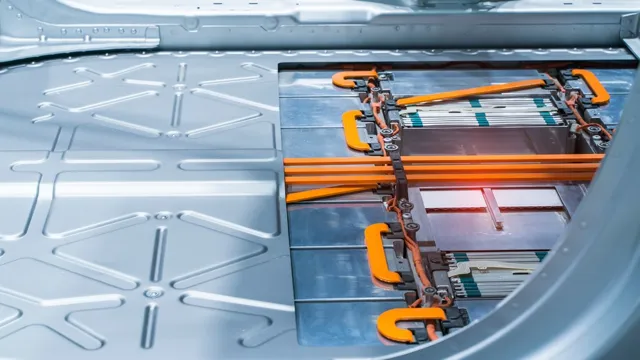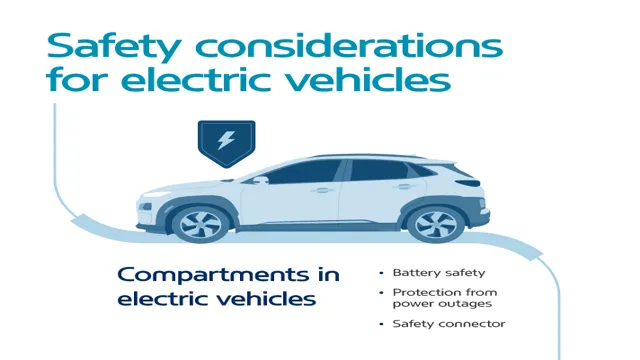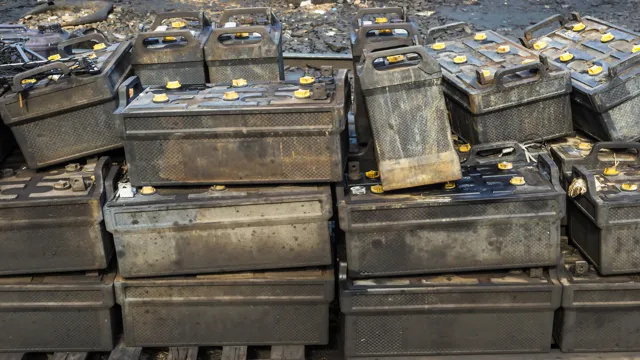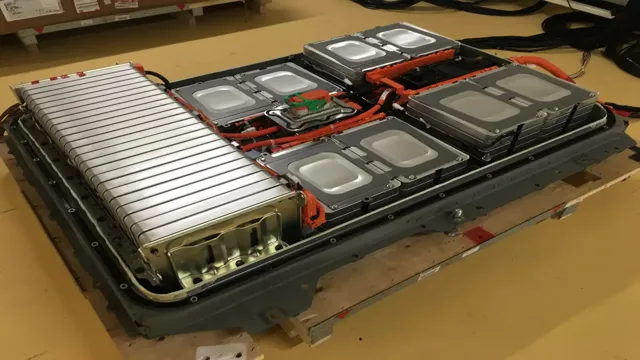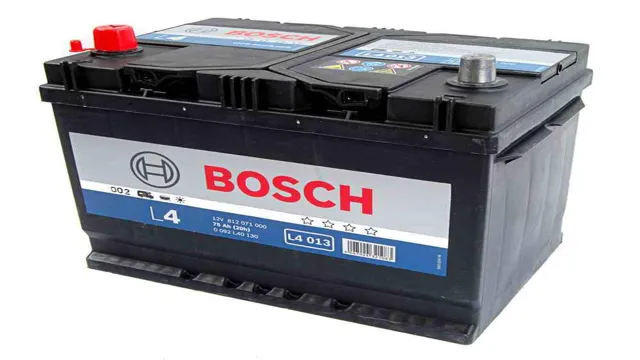Revolutionizing the Roads: Exciting Electric Car Battery Breakthroughs Unveiled in August 2019!
Electric car battery breakthroughs are something we’re continuously on the lookout for. What exciting news then, that August 2019 brought forth some promising developments in this field. This is especially good news, given the growing interest in emissions-free modes of transport and the need to preserve our environment.
Battery technology plays a vital role in making electric cars viable, and it’s what will ultimately spur mass adoption of electric vehicles. In this blog post, we’ll delve into the latest battery breakthroughs of August 2019, what they mean for electric cars, and how they’re expected to impact the industry.
New Developments in Battery Technology
Aug 2019 saw some exciting breakthroughs in electric car battery technology. Scientists have developed a new type of lithium-ion battery that promises to significantly increase driving range. This battery uses a high-nickel cathode that can store more energy and allows for higher voltage.
Additionally, it is less likely to overheat, making it safer for use in electric vehicles. Another development involves the use of sodium-ion batteries. While still in the experimental stage, sodium-ion batteries have the potential to be more affordable and environmentally friendly than their lithium-ion counterparts.
The sodium-ion battery uses materials that are abundant and accessible, reducing the reliance on rare and expensive metals. With these new advancements, electric cars are becoming more practical and accessible for everyday use. The future of transportation is looking bright, and battery technology is leading the way.
Solid-state batteries show promise for longer range and faster charging
Battery technology has always been a major concern for electric vehicle manufacturers. However, recent developments in the field of solid-state batteries promise increased range and faster charging times for these vehicles. These batteries employ a solid electrolyte instead of the liquid electrolytes used in traditional lithium-ion batteries.
The use of solid-state batteries could address some of the key challenges faced by electric vehicles, such as limited range and long charging times. With a higher energy density, solid-state batteries can offer a longer driving range, and faster charging times, while also being safer and more durable. The use of all-solid-state batteries also has the potential to make electric vehicles more affordable by reducing the need for expensive safety features, typically required for traditional batteries.
As solid-state battery technology continues to evolve, it could transform the automotive industry by making electric vehicles more practical and cost-effective.
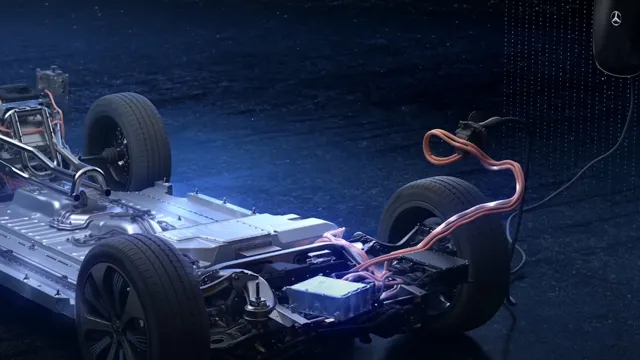
Lithium-sulfur batteries could reduce costs and increase energy density
Lithium-sulfur batteries are a hot topic in the world of battery technology. These new battery types are being developed to reduce costs and increase energy density. They have the potential to revolutionize the way we power our devices, from smartphones and laptops to electric vehicles.
These batteries use sulfur as the cathode material, which is much cheaper than the materials used in traditional lithium-ion batteries. This means that the production costs of lithium-sulfur batteries will be significantly lower than lithium-ion batteries. Additionally, these batteries have higher energy density, which means they can store more energy in the same amount of space.
This makes them ideal for use in electric vehicles, which require high energy density batteries to maximize their range. Lithium-sulfur batteries are still in the development stage, but researchers are optimistic about their potential to transform the energy storage industry.
Innovations in Battery Manufacturing
Aug 2019 has witnessed some exciting developments in the world of battery manufacturing, particularly in the domain of electric vehicles. Scientists and researchers have been working tirelessly to push the boundaries of battery performance and efficiency, and there have been some major breakthroughs. One such buzz-worthy innovation has been the development of solid-state batteries, which rely on a solid electrolyte instead of a liquid one.
This not only makes them safer and more stable than traditional lithium-ion batteries but also offers higher energy density for longer-range electric cars. Moreover, advances in nanotechnology have allowed for more efficient and reliable manufacturing processes, making electric car batteries more accessible and affordable for a wider range of customers. All these new breakthroughs are quickly shattering our perception of what is possible with battery manufacturing technology and offer exciting new possibilities for the electric vehicle industry.
Tesla’s Gigafactory 3 in China pushes for faster battery production
Battery manufacturing innovation, Gigafactory 3, Tesla, China, faster production Tesla’s Gigafactory 3 in China has been making headlines lately with its pursuit of faster battery production. The factory was established to meet the growing demand for electric vehicles (EV) in the Chinese market. However, Tesla is now looking to accelerate battery production to address global demand as well.
In order to achieve this, the company is innovating battery manufacturing processes, introducing new technologies and optimizing its supply chain. One of the key initiatives is to reduce the time it takes to manufacture batteries by streamlining the production line and improving automation. Another key innovation is the use of new materials that enhance the efficiency of batteries, thereby increasing the range and power of EVs.
Tesla is also experimenting with new battery designs that are more compact and lightweight, while still maintaining high energy density. These advancements are not only important for Tesla’s growth but for the wider EV industry as well. Battery production is a critical bottleneck for the adoption of EVs, and any innovations that speed up the process will have a significant impact on the industry’s future.
Overall, Tesla’s Gigafactory 3 is pushing the boundaries of battery manufacturing and accelerating the transition to a more sustainable future. With its focus on innovation and efficiency, the company is poised to stay at the forefront of the EV revolution for years to come.
Japanese automakers team up to develop standardized electric car batteries
Battery Manufacturing In recent news, Japanese automakers have joined forces to develop a standardized electric car battery. This marks a significant step forward in the industry, as it will help to streamline the manufacturing process and reduce costs. With this new innovation, electric cars could become more affordable and accessible to consumers.
In the past, each automaker had their own unique battery design, which made it difficult for companies to work together and share resources. However, by creating a standardized battery, companies can now work together to design and manufacture these batteries, which will ultimately lead to increased efficiency and lower costs. This move is not only good news for car companies but also for the environment, as electric cars are much cleaner and produce fewer emissions than traditional gas-powered vehicles.
With the development of standardized batteries, we can expect to see more electric cars on the market in the near future.
South Korean researchers use AI to improve battery production efficiency
Battery manufacturing has seen an exciting breakthrough with South Korean researchers utilizing AI technology to enhance production efficiency. By implementing machine learning algorithms, the team of researchers has been able to predict the precise temperature at which lithium-ion batteries should be heated to optimize their performance and lifespan. This intelligent system can analyze different variables, such as electrode thickness, temperature, and pressure, to determine the ideal manufacturing conditions.
Given the critical importance of batteries in electronic devices, this development could revolutionize battery production, making it more cost-effective and sustainable. The implications of such a breakthrough could lead to longer battery lives, faster charging times, and the potential for wider adoption of electric vehicles powered by high-performance batteries built through AI technology. It’s a significant step forward in the evolution of battery production.
Implications for Electric Car Owners and the Industry
Aug 2019 has seen some groundbreaking developments within the electric car industry, specifically in regards to battery technology. The advancements that have been made are set to have significant implications for both electric car owners and the industry as a whole. With these battery breakthroughs, electric cars will be able to travel further and faster than ever before, as well as reducing charging times and costs.
This means that range anxiety will become less of an issue, allowing electric cars to become more viable and desirable modes of transportation. Not only that, but these developments will also have a positive impact on the industry itself. The growing demand for electric cars will lead to a greater need for manufacturing and infrastructure, creating new jobs and economic opportunities.
Overall, it is clear that these Aug 2019 electric car battery breakthroughs are a step in the right direction for the industry. As further advances are made, we can expect to see electric cars becoming an increasingly popular and important part of our daily lives.
Lower costs and increased range could boost electric car sales
With lower costs and increased range of electric cars, the future looks bright for electric vehicle owners and the industry as a whole. As more consumers become aware of the benefits of electric cars over traditional gas-powered vehicles, it is expected that sales will continue to rise. Lower prices on electric cars, which were once considered a luxury item, will make this sustainable mode of transportation available to more people.
With the price of electric cars getting closer to that of gas-powered cars, electric cars are becoming a more attractive option for the average consumer. Increased range for electric cars will also eliminate concerns over running out of battery power while on the road. These factors combined will make electric vehicles more desirable, leading to additional growth in the electric vehicle industry.
It is an exciting time to be an electric car owner or enthusiast, as the future looks bright for this sustainable mode of transportation.
Potential for renewable energy storage and grid stabilization
Electric car owners may soon benefit from renewable energy storage solutions, which are becoming increasingly viable as global interest in sustainable power generation grows. Energy storage could be a game-changer for the industry, as it would enable the efficient management and utilization of renewable energy sources, such as solar and wind power. With the aid of advanced storage technologies, excess electricity generated during off-peak hours can be captured and used during peak demand periods, providing economic benefits to consumers and grid operators alike.
Furthermore, grid stabilization measures could provide a stable charging experience for electric car users, making it more convenient to charge vehicles at any time of the day. It is clear that renewable energy storage and grid stabilization could revolutionize the energy industry and bring tremendous benefits to electric car owners, paving the way for a cleaner and more sustainable future for all.
The Future of Electric Car Battery Breakthroughs
In August 2019, electric car battery breakthroughs were a hot topic in the auto industry. Researchers were working tirelessly to develop more efficient and reliable battery technologies that would help electric cars become more practical for everyday use. One of the biggest challenges facing electric cars is the limited range on a single charge, and a breakthrough in this area could lead to a major shift in the market.
Fortunately, there are several promising developments on the horizon. For example, scientists have been experimenting with different materials and designs that could lead to more powerful and longer-lasting batteries. In addition, there are efforts underway to improve the charging infrastructure, which could make it easier and more convenient for drivers to top up their batteries on the go.
With these exciting developments on the horizon, it is clear that there is a bright future ahead for electric car battery breakthroughs.
Conclusion
As we close the chapter on “aug 2019 electric car battery breakthroughs,” it’s clear that the future of sustainable transportation is looking brighter than ever. With advancements in solid-state battery technology, increased energy density, and prolonged lifespans of batteries, the road ahead looks promising for electric vehicles. So, let’s buckle up and enjoy the ride as we charge towards a greener, cleaner tomorrow!”
FAQs
What are the recent breakthroughs in electric car battery technology?
In August 2019, several major advancements were made in electric car battery technology, including the development of solid-state batteries by Toyota and the creation of a new lithium-ion battery by scientists at the University of Maryland.
How do these breakthroughs improve electric car performance?
Solid-state batteries offer higher energy density, longer lifespan, and improved safety compared to traditional lithium-ion batteries, while the new lithium-ion battery from the University of Maryland is said to be capable of storing twice as much energy as current lithium-ion batteries. These improvements translate to longer driving ranges and faster charging times for electric cars.
Who are the companies leading the way in electric car battery research?
Major players in the electric car battery research field include Tesla, Panasonic, LG Chem, and Samsung SDI, as well as academic institutions and startups working on new battery technologies.
What are some of the challenges still facing the electric car battery industry?
While advancements have been made, the electric car battery industry still faces obstacles such as high costs, supply chain issues, and the need for more efficient and sustainable production methods. Additionally, there is ongoing research into developing more environmentally friendly battery materials to minimize the environmental impact of battery production and disposal.

